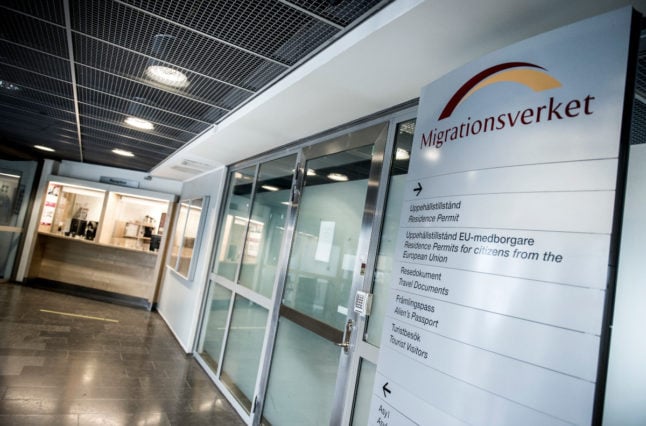In an interview with the Sydsvenskan newspaper, Ribbenvik, who will end his 24-year career at the Migration Agency in May, complained that migration legislation had become ever more complicated and confusing over the past decade as a result of a series of coalition governments where different parties have “sought to cram in all their pet issues”.
Since the refugee crisis in 2015, there has been the temporary migration law from 2016, which made temporary residency the default for asylum seekers, and then the two ‘gymnasium laws’, which he described as “half-amnesties”.
The two laws opened the way for people who had come to Sweden as unaccompanied child asylum seekers and whose asylum application had been rejected to stay if they finished upper secondary school and got a job.
Now, Ribbenvik worried, a new barrage of new laws from the three-party right wing government and their far-right backers, the Sweden Democrats, risked making the system even more complicated.
“The legislation is starting to become too complicated for anyone to understand. It’s absolutely impossible to explain in the media, because you don’t have the time,” he told the newspaper. “We need to have our absolutely smartest migration people in our legal unit to work everything out.”
When the new government announced its intention to phase out permanent residency, the agency’s phones were deluged with worried calls from permanent residency holders.
Ribbenvik summarised the message to Sydsvenskan as: “OK, you can stay… no, you can’t stay.”
“I have a great amount of understanding for the confusion this has caused,” he said. “Debate articles attack the Migration Agency, and we’re an easy target. But this is a consequence of the legislation there has been in recent years.”
After Sweden’s government announced that Ribbenvik’s contract was not going to be extended, Björn Söder, a Sweden Democrat MP and member of the parliament’s defence committee, celebrated the decision.
“Time to tidy up Agency Sweden,” Söder wrote on Twitter. “Kick the asylum activists out of the agency.”
In the Sydsvenskan interview, Ribbenvik characterised himself as a “proud bureaucrat”, who was apolitical and saw his role as enacting the orders of politicians in the best way possible. He didn’t join the agency because of a passion for immigration issues, but because he needed a part-time job while he finished his law degree, he said.
“I read now that I’m a Director-General appointed by the Social Democrats. So am I going to be politicised now, right at the end? Because I never have been before.”
Very often, he said, attacks like Söder’s “say nothing about the accused, but a lot about the accuser”.
He did say, however, tell the newspaper that he had been surprised by how quickly the debate had shifted in Sweden from the days when most of the criticism the agency received came from those wanting more liberal treatment for asylum seekers to today, when they are accused of being too lenient.
“As someone who’s worked here for 24 years, I’m stunned over how the debate has shifted in recent months, when the whole time I’ve been here, it’s been the opposite: ‘why do you analyse people’s language, why do you do age assessments?’. We’ve always been criticised from the other direction.”



 Please whitelist us to continue reading.
Please whitelist us to continue reading.
Member comments